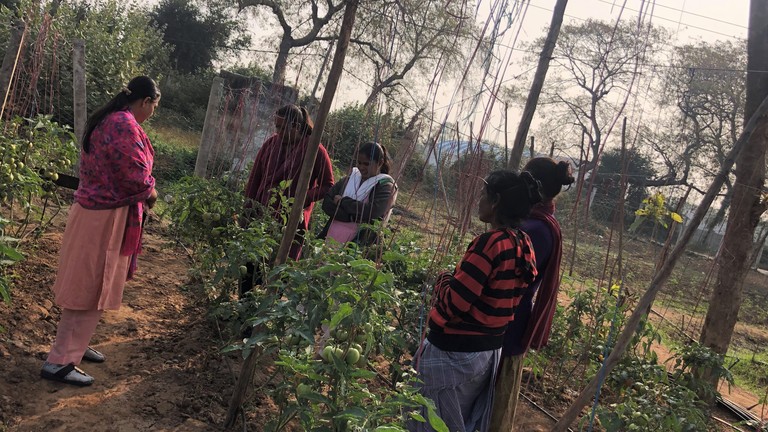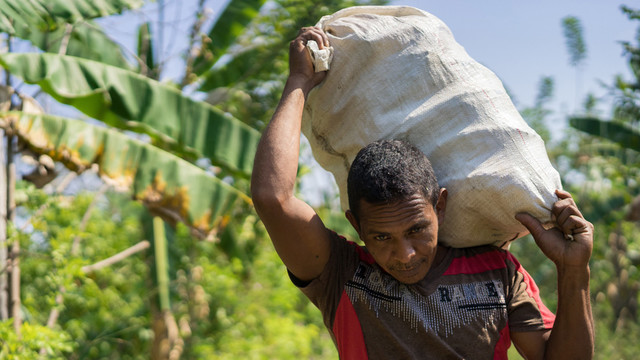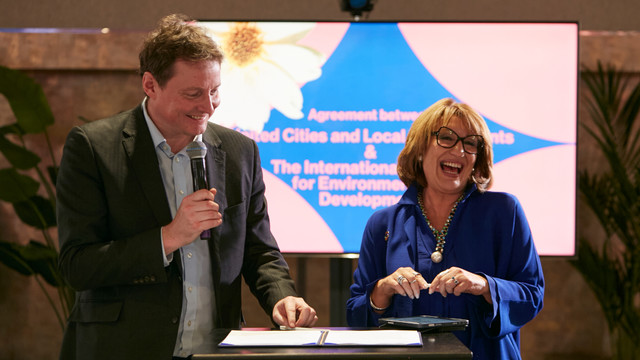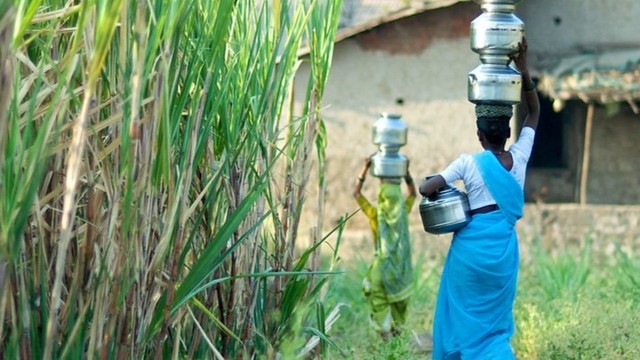Empowering women forest and farm producers: learning from the best
Isabela Núñez del Prado Nieto discusses how the pioneering work of a women’s trade union in India could inspire and strengthen women forest and farm producers.


SEWA members working on tomato farming in Anand district, India (Photo: Isabela Núñez del Prado Nieto, IIED)
The Forest and Farm Facility (FFF) is a partnership aimed at strengthening forest and farm producer organisations. A cross-cutting goal of FFF is to support the empowerment and entrepreneurship of women forest and farm producers.
Women’s organisations around the world are trailblazing transformative approaches to economic empowerment and livelihood improvement. One such organisation is the Self-Employed Women’s Association (SEWA) headquartered in Ahmedabad, India.
As part of IIED’s work with FFF, I travelled to SEWA to learn about their groundbreaking work and to draw together elements that could inspire other women-led organisations.
A model to empower and inspire
Founded 52 years ago, few women’s organisations have SEWA’s longevity and success. It is the largest trade union of women workers in India with 2.5 million members working in 125 different trades across 18 states. SEWA is working to replicate its model and approach across borders and has reached seven other countries so far.
SEWA operates as a community of 120 independent organisations that combine trade union activism, formation of grassroot organisations, integrated training, facilitating access to finance, and growing women’s enterprises. SEWA’s goal is to achieve full employment and self-reliance for all its members.
An 11-question approach supports this goal. These self-evaluating questions cover access to basic services including health, childcare and housing. They are underpinned by the concept of ‘100-mile communities’ where basic needs are met at the local level to strengthen community bonds and resilience.
SEWA’s focus on basic services is fundamental: to be able to work, women need access to key services. For women-led or women majority forest and farm producer organisations, SEWA’s integrated approach offers a practical guide for supporting women’s economic empowerment.
Organising for learning and sharing
To support entrepreneurship, SEWA organises women into groups of around 15-20. These ‘Swashrayi’ groups are formed according to trade – (including farming, cattle ranching, weaving and others), identified in line with the women’s current work and skills.
The group leader facilitates regular meetings where women can share experiences, learn new skills and benefit from peer support. The groups evolve over time to become district-level associations, trade-based cooperatives or federations.
SEWA’s approach stands out as it is tailored to each village they work in; there is no one-size-fits-all solution. Time dedicated to truly understanding the specific needs and circumstances of each community helps create organisations that are sustainable and independent.
Forest and farm producer organisations could replicate this tailored approach and organise women at grassroot level, according to the trades most fitting for each village.
Training for all
SEWA's training is a vital part of its work. As members say: "SEWA is like a mother − every mother trains her children".
Training includes trade-specific technical skills such as training in quality assessment of various products (for example salt, milk, fabrics), training to improve techniques, soft skills such as personal development and stress management, as well as general business training (for example management, financial literacy, marketing).
Getting training to its millions of members could present a major challenge. But SEWA reaches its entire membership base through an innovative system of ‘cascade training’.
Under this system, ‘master trainers’ are trained in the SEWA Manager Ni School; they take the training to other group leaders who in turn train members in their villages.
National and regional member-based organisations aiming to provide training could learn from SEWA’s cascading approach, including offering training in a combination of trade-specific, business, and soft skills.
Facilitating access to finance
Women in the informal sector often have little to no capital or assets. As a way of growing their financial resources, women save together in the ‘Swashrayi’ groups, enabling them to access loans when needed.
However, to change their businesses significantly, women need bigger loans − yet they cannot access traditional banking services.
In 1974, SEWA mobilised the contributions of 4,000 members to establish the SEWA Bank. Its focus is to promote savings by encouraging members to adopt savings habits through awareness raising and incentives. Instead of collateral and guarantors that banks usually require for access to loans, SEWA bank uses savings habits as collateral and their group members as guarantors.
The way SEWA Bank operates provides many ideas for helping women producer organisations to provide their members with financial services − starting from ways of mobilising their own funds to tailoring products to their members’ needs.
Growing women’s enterprises
SEWA has successfully supported the creation of social enterprises, managed and owned by women, facilitating market access through links and partnerships.
One example is the SEWA Trade Facilitation Centre that produces garments with traditional embroidery, working in partnership with designers to target various markets. Products are sold through the SEWA Bazaar, a platform for all SEWA’s entrepreneur members to market their products under the SEWA name.
Another example is RUDI (Rural Distribution Network), an agribusiness company that links farmers directly to consumers, eliminating intermediaries. RUDI has increased the income of farmers, as well as creating jobs for women − known as the ‘rudibens’ – to sell the products.
Establishing links and partnerships is a practical way of facilitating access to markets that other organisations supporting entrepreneurs can take to different sectors.
A global peer-to-peer platform for women’s empowerment
IIED, as a partner of FFF, is working with women leaders of forest and farm producer organisations across Africa, Asia and Latin America to establish a platform to support women’s empowerment and entrepreneurship, and create a space where they can share knowledge and learn from each other.
The interactive platform will provide open online access to a range of content, including case studies and reports that will be selected by a steering group of women leaders. It will also host a series of virtual dialogues where women’s organisations can discuss topics most relevant to them and, with peers, share lessons for empowerment and ways to advance entrepreneurship.
Short reports and infographics summarising key takeaways from the dialogues will be shared on the platform, creating a participatory space where women can access knowledge resources and connect with a supportive community of peers.




